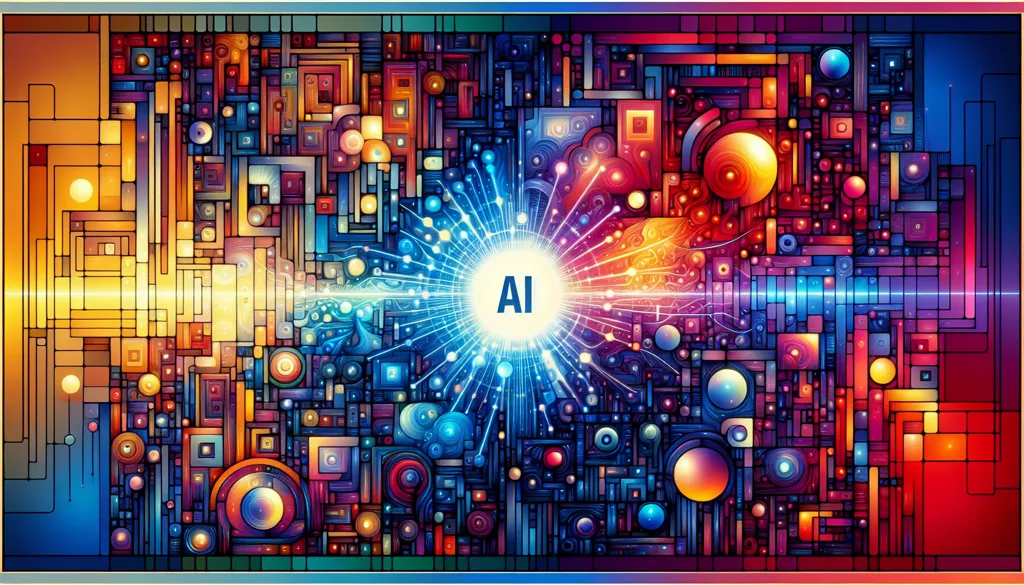The AI Revolution: Balancing Innovation and Regulation in 2025
As a mother living in suburban Kansas, I've witnessed firsthand how technological advancements can reshape our daily lives, from the way we work to how we interact with family and friends. One of the most transformative technologies in recent years is Artificial Intelligence (AI). Its influence spans multiple sectors, including healthcare, finance, and even our homes. As we look toward 2025, it's clear that AI will continue to revolutionize many aspects of our lives, but this comes with its own set of challenges and opportunities.
The Promise and Perils of AI
AI technology isn't entirely new, but its rapid evolution in recent years has significantly impacted industries worldwide. The potential benefits are immense, offering increased efficiency, personalized experiences, and even the possibility of tackling complex global issues like climate change and healthcare accessibility. For instance, AI in healthcare has shown promise in developing precise and efficient solutions, from designing better clinical trials to creating more personalized treatments.
However, with these advancements come significant challenges, particularly regarding ethics and regulation. The rapid pace of AI development often outstrips our ability to understand and regulate it effectively. This has led to concerns about privacy, data security, and the potential for bias in AI systems. It's a delicate balance between fostering innovation and ensuring that these technologies do not harm individuals or society.
Regulating AI: A Global Perspective
Globally, there's an ongoing debate about how best to regulate AI to minimize risks while fostering innovation. The European Union, for instance, is taking a proactive approach with its AI regulatory framework, aiming to create a balance between protection and innovation. This framework categorizes AI systems based on risk levels, ranging from minimal risk to high risk, with stringent regulations applied to the latter.
In the United States, the regulatory landscape is less defined, with a potential preference for a more light-touch approach that could impact global competitiveness. This divergence in regulatory strategies highlights the challenges of managing AI on an international scale, especially when considering the cross-border nature of data and AI applications.
AI in Daily Life: Practical Applications and Challenges
In everyday life, AI is becoming increasingly integrated into our routines. From personal assistants like Siri and Alexa to advanced AI systems in vehicles that predict optimal routes based on real-time data, AI is reshaping how we manage our time and make decisions. However, this increased reliance on AI also raises questions about data privacy and the line between personal and professional data.
For businesses, especially those in the tech sector, AI offers tools for efficiency and personalization. For example, generative AI in human resources can automate mundane tasks, allowing HR teams to focus on strategic initiatives. Yet, companies must navigate the complexities of integrating AI into their workflows while respecting employees' privacy and maintaining a balance between innovation and ethical practices.
The Role of AI in Creativity and Innovation
2025 is expected to be a pivotal year for AI as it transitions from being a helpful tool to an integral part of creativity and innovation. AI is increasingly being used in creative industries, from designing marketing campaigns to predicting consumer needs before they are expressed. This not only speeds up the creative process but also opens up new possibilities for collaboration between humans and machines.
However, there's a risk of over-reliance on AI, which can lead to cognitive atrophy where individuals lose the ability to perform tasks independently. It's crucial to implement AI thoughtfully to enhance human capabilities rather than replace them, fostering long-term empowerment and growth.
Looking Ahead: AI's Future and Our Responsibility
As we look to the future, AI holds the potential to address some of the world's most pressing challenges. Yet, this requires a concerted effort from governments, businesses, and individuals to ensure that AI is developed and used responsibly. In healthcare, for example, patient-facing AI must be developed with strict regulations to protect sensitive data, while provider-facing AI can ease workloads and improve efficiency.
Moreover, the rise of AI demands robust data management strategies to handle the increasing volume of AI-generated data. Companies that successfully integrate AI into their operations will likely gain a competitive edge, but those that fail to adapt may find themselves falling behind.
Conclusion
Artificial Intelligence is set to become an even more integral part of our lives in 2025, offering both incredible opportunities and formidable challenges. As a mother and a professional, I see the potential for AI to improve our lives while being acutely aware of the need for responsible innovation and regulation. It's a complex landscape, but with careful consideration and collaboration, we can harness AI's power for the greater good, ensuring that it serves to enhance, rather than hinder, our human experience.

